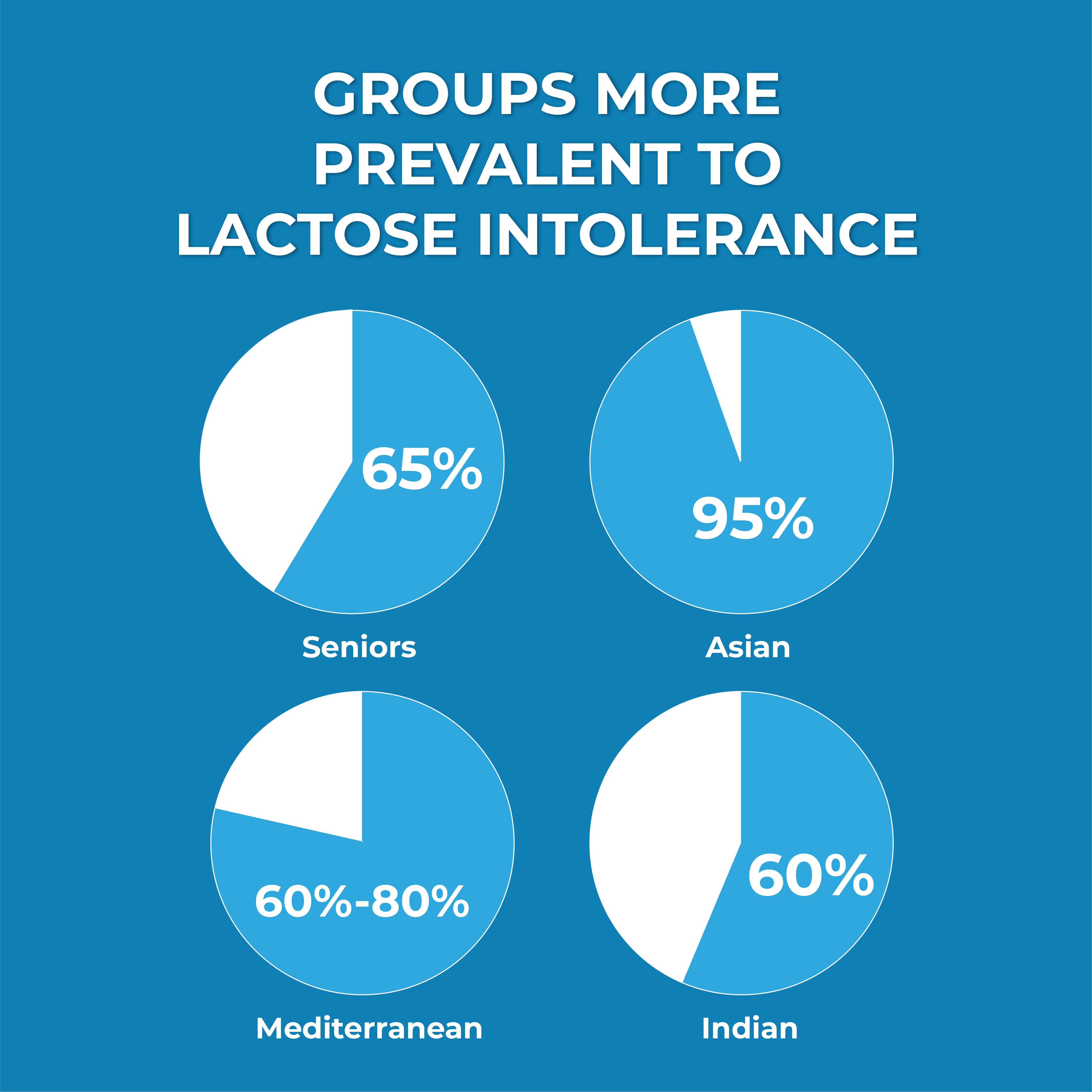Affecting 68 percent of people around the world.
Primary Lactose Intolerance
This is the most common type of lactose intolerance. It is estimated that primary lactose intolerance (or lactase malabsorption) affects 68% of the world’s adult population.
Although primary lactose intolerance can affect people of all ages, it is more common amongst certain sectors of the population, such as:
- Seniors: We naturally make fewer lactase enzymes as we age, leading to approximately 65% of seniors showing some symptoms of lactose intolerance.
- Some ethnic groups where dairy has not been a traditional part of the diet, such as Asian (95% lactose intolerant), Indian (60%), people of Mediterranean descent (60-80%), and Indigenous Australians (60%).

Developmental Lactose Intolerance
(or transient lactose intolerance)
This may occur when a baby is born prematurely or is born with an immature digestive system. Lactase production in the foetus develops late in pregnancy, at 34 weeks gestation, and is not completed until birth.
Developmental lactose intolerance has been shown to be an important cause of lactose intolerance and colic symptoms. Studies show approximately 40% of babies diagnosed with colic actually suffer from developmental lactose Intolerance.
Pre-treating babies’ feeds with lactase supplements has been clinically proven to reduce crying time by at least 45% – from the first feed.
Secondary Lactose Intolerance
Another type of lactose intolerance is secondary lactose intolerance. This occurs when the small intestine is damaged by illness, injury or surgery.
Common causes of secondary lactose intolerance are:
- Gastroenteritis
- Persistent diarrhoea
- Intestinal parasites
- Giardiasis
- Chemotherapy
- Crohn’s disease
- Inflammatory bowel disease
- Coeliac disease
Treatment of the underlying disorder may restore lactase levels as the small intestines heal.
Congenital lactose intolerance
(or Galactosemia)
This is a very rare genetic disorder that prevents any form of lactase production from birth. Babies with congenital lactose intolerance show clear signs of malabsorption and dehydration, requiring immediate medical attention.








